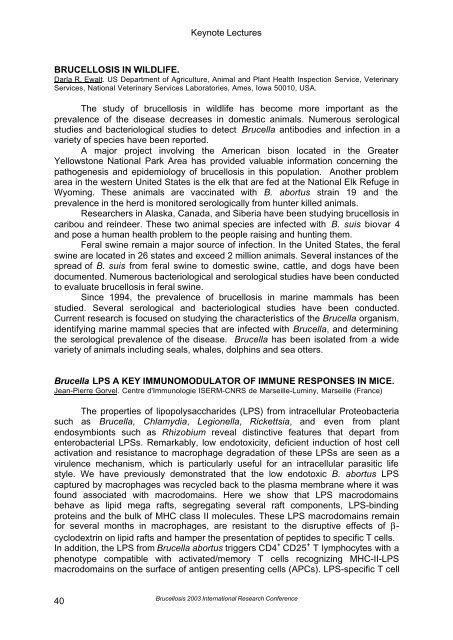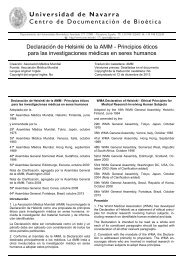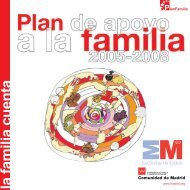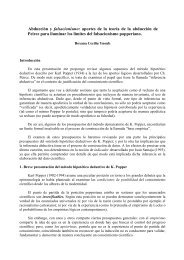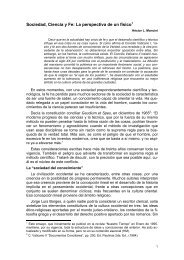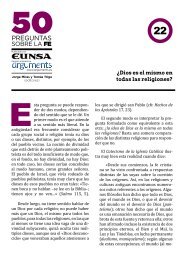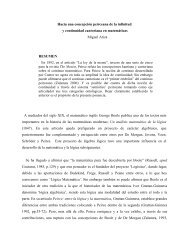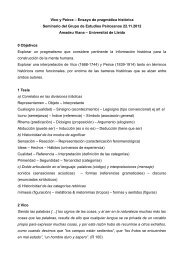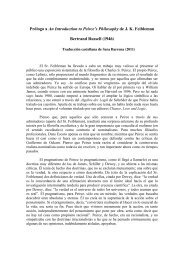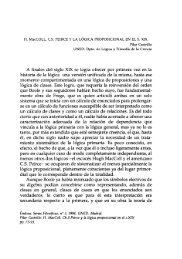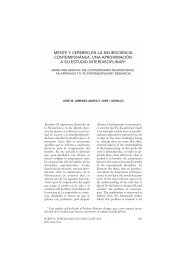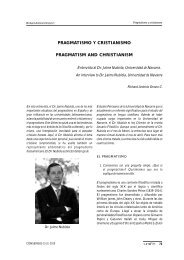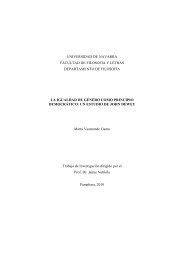Brucellosis 2003 proceedings - PHIDIAS
Brucellosis 2003 proceedings - PHIDIAS
Brucellosis 2003 proceedings - PHIDIAS
You also want an ePaper? Increase the reach of your titles
YUMPU automatically turns print PDFs into web optimized ePapers that Google loves.
Keynote Lectures<br />
BRUCELLOSIS IN WILDLIFE.<br />
Darla R. Ewalt. US Department of Agriculture, Animal and Plant Health Inspection Service, Veterinary<br />
Services, National Veterinary Services Laboratories, Ames, Iowa 50010, USA.<br />
The study of brucellosis in wildlife has become more important as the<br />
prevalence of the disease decreases in domestic animals. Numerous serological<br />
studies and bacteriological studies to detect Brucella antibodies and infection in a<br />
variety of species have been reported.<br />
A major project involving the American bison located in the Greater<br />
Yellowstone National Park Area has provided valuable information concerning the<br />
pathogenesis and epidemiology of brucellosis in this population. Another problem<br />
area in the western United States is the elk that are fed at the National Elk Refuge in<br />
Wyoming. These animals are vaccinated with B. abortus strain 19 and the<br />
prevalence in the herd is monitored serologically from hunter killed animals.<br />
Researchers in Alaska, Canada, and Siberia have been studying brucellosis in<br />
caribou and reindeer. These two animal species are infected with B. suis biovar 4<br />
and pose a human health problem to the people raising and hunting them.<br />
Feral swine remain a major source of infection. In the United States, the feral<br />
swine are located in 26 states and exceed 2 million animals. Several instances of the<br />
spread of B. suis from feral swine to domestic swine, cattle, and dogs have been<br />
documented. Numerous bacteriological and serological studies have been conducted<br />
to evaluate brucellosis in feral swine.<br />
Since 1994, the prevalence of brucellosis in marine mammals has been<br />
studied. Several serological and bacteriological studies have been conducted.<br />
Current research is focused on studying the characteristics of the Brucella organism,<br />
identifying marine mammal species that are infected with Brucella, and determining<br />
the serological prevalence of the disease. Brucella has been isolated from a wide<br />
variety of animals including seals, whales, dolphins and sea otters.<br />
Brucella LPS A KEY IMMUNOMODULATOR OF IMMUNE RESPONSES IN MICE.<br />
Jean-Pierre Gorvel. Centre d'Immunologie ISERM-CNRS de Marseille-Luminy, Marseille (France)<br />
The properties of lipopolysaccharides (LPS) from intracellular Proteobacteria<br />
such as Brucella, Chlamydia, Legionella, Rickettsia, and even from plant<br />
endosymbionts such as Rhizobium reveal distinctive features that depart from<br />
enterobacterial LPSs. Remarkably, low endotoxicity, deficient induction of host cell<br />
activation and resistance to macrophage degradation of these LPSs are seen as a<br />
virulence mechanism, which is particularly useful for an intracellular parasitic life<br />
style. We have previously demonstrated that the low endotoxic B. abortus LPS<br />
captured by macrophages was recycled back to the plasma membrane where it was<br />
found associated with macrodomains. Here we show that LPS macrodomains<br />
behave as lipid mega rafts, segregating several raft components, LPS-binding<br />
proteins and the bulk of MHC class II molecules. These LPS macrodomains remain<br />
for several months in macrophages, are resistant to the disruptive effects of β-<br />
cyclodextrin on lipid rafts and hamper the presentation of peptides to specific T cells.<br />
In addition, the LPS from Brucella abortus triggers CD4 + CD25 + T lymphocytes with a<br />
phenotype compatible with activated/memory T cells recognizing MHC-II-LPS<br />
macrodomains on the surface of antigen presenting cells (APCs). LPS-specific T cell<br />
40<br />
<strong>Brucellosis</strong> <strong>2003</strong> International Research Conference


